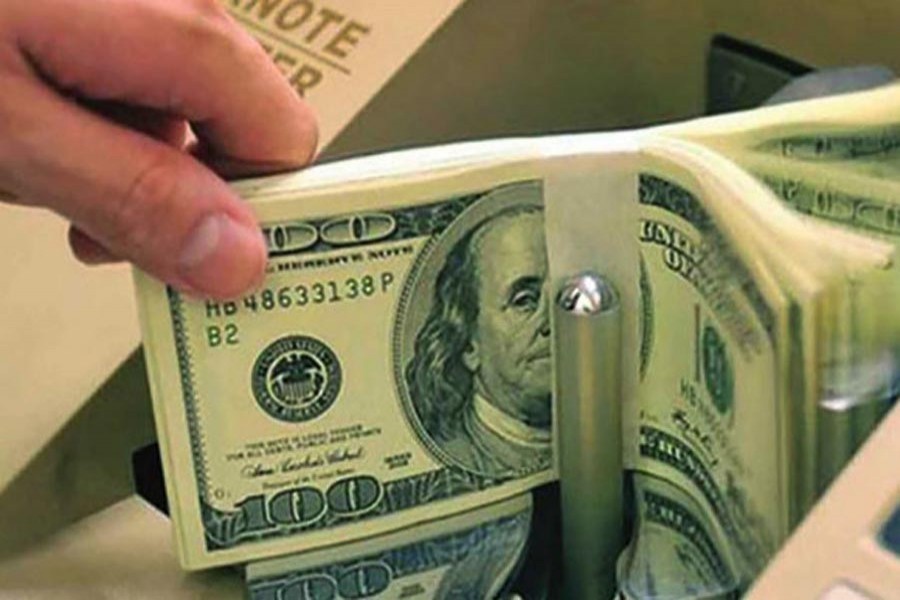The central bank seeks explanation from six more banks over their alleged involvement in bagging windfalls from 'unethical' dollar dealings, which hit all in knock-on impact, officials said Wednesday.
The managing directors (MD) and chief executive officers (CEOs) of five private commercial banks (PCBs) and one foreign commercial bank have been asked to submit the explanation to the department concerned of the Bangladesh Bank (BB) within seven working days.
The central bank issued a letter Wednesday seeking explanations about alleged irregularities relating to foreign-exchange feelings that fueled volatility on the market recently.
"We'll take the next course of action after receiving explanation from the banks," a top central banker told the FE while replying to a query.
The central bank has made the latest moves after completing a special inspection into the banks for detecting alleged irregularities related to foreign exchange that fueled volatility on the market during the January-July period of the current calendar year.
Six teams of the BB started the on-site inspections into the banks on August 22, focusing alleged higher exchange gains through 'unethical' practices during the period under review.
During the probe, the teams had also been assigned to the task of collecting information on corporate deals, inter-bank transactions, customer forward, net revaluation gains and regular gains from customers.
Locking their profits, the central bank on August 17 served show-cause notices to top executives of six banks for their alleged machinations fuelling volatility on the forex market through 'unethical' exchange gains.
The BB issued the notices after more than a week of taking action against treasury heads of the banks for their alleged involvement in netting windfalls through unethical practices in foreign-currency exchange.
On August 08, the central bank had asked MDs and CEOs of the same banks to relegate their treasury heads to human resources (HR) department immediately on the same ground.
In May 2022, the central bank completed similar on-site inspections into 16 banks, including four state-owned commercial banks (SoCBs), to find out alleged 'distortion' on foreign-exchange rate by the banks concerned.
Rate distortion means banks charge higher price of the US currency bypassing their announced rates particularly for BC (bills for collection) selling and TT (Telegraphic Transfer) clean.
The teams had found that the banks did not show their foreign exchange deposited with overseas accounts, officially known as NOSTRO account, in their net open position (NOP) properly.
A NOSTRO account is an account that a local bank maintains with an overseas bank in foreign currency.
On the other hand, the central bank will sit with top bankers today (Thursday) to discuss how to manage the ongoing volatility on the country's foreign-exchange market for curbing the falling trend of foreign-exchange reserves.
The BB has already invited top leaders of the Association of Bankers, Bangladesh (ABB) and Bangladesh Foreign Exchange Dealers' Association (BAFEDA) to take part in the discussion on the latest forex situation at the joint meeting, according to the officials.
The meeting will be held at the central bank headquarters in the capital with BB deputy governor Ahmed Jamal in the chair.
"We'll discuss implementation of the fresh spread between sale and purchase rates of the US dollar on the foreign-exchange (forex) market at the meeting," another BB official told the FE, without celebration.
On August 14, the central bank asked bankers at a meeting for a review of the spread between sale and purchase rates of the greenback, limiting the margin to Tk 1.0 to help bring stability in the country's forex market.
Meanwhile, the central bank is providing the US dollar as foreign-currency liquidity support to scheduled banks continuously for managing the forex-market volatility.
As part of the ongoing moves, the central bank sold $40 million more directly to three state-owned commercial banks Wednesday to help them meet a growing demand for the greenback as global price rises have led to import-cost escalation with its resultant pressures on reserves of Bangladesh, as also of many other countries.
The BB has so far injected $2.68 billion from the reserves directly into commercial banks as liquidity support for import payments in the current fiscal year (FY), 2022-23.
In FY22, the central bank sold $7.62 billion from the reserves to the banks for the same purpose.
Bangladesh's forex reserves came down to $38.99 billion on Wednesday from $39.02 billion of the previous working day following higher sales of the greenback to feed the market.
The reserves may come down further to more than $37 billion shortly after a routine payment worth $1.73 billion to the Asian Clearing Union (ACU) against imports made during the July-August period.


